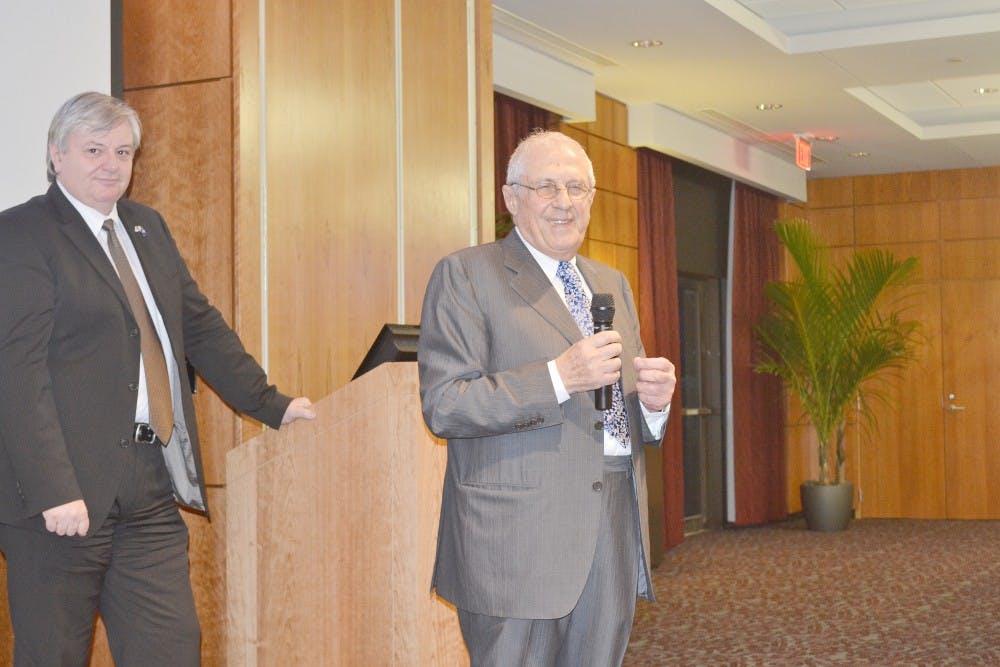USC Classics program hosts Acropolis’ Dimitrios Pandermalis
An archaeologist and scholar with very close ties to one of the world’s most popular archaeological sites discussed the logistics behind building a home fit for priceless Classical artifacts Thursday.
The Department of Languages, Literatures and Cultures’ Classics program hosted faculty, students and community members in the Capstone Campus Room for a lecture by Dimitrios Pandermalis, president and curator of the Acropolis Museum in Athens, Greece.
Pandermalis has been the president of the museum, which sits in the shadow of the Parthenon, since its opening in 2009. He is also a professor of archaeology at the Aristotle University of Thessaloniki and served two terms in the Greek Parliament.
Pandermalis spoke about the logistics behind creating the museum and about the huge collection of Greek artifacts contained within it. According to Pandermalis, the historic nature of the building site posed unique obstacles to the construction of the museum.
“First, we had to find the location for the museum, but everywhere they excavated for the foundation, they found antiquities, so they had to move and move and move,” he said.
The building’s designers found a creative solution, though, by incorporating an archaeological site into the very foundation of the building. The structure of the museum was raised on stilts, and sections of the bottom-level floor were removed from the designs in order to allow visitors to look down into the site.
Pandermalis also explained the laser-based cleaning techniques that the museum used to clean dirt and pollution off artifacts without compromising or damaging the artifacts themselves.
Pandermalis was honored with the USC President’s Award in recognition of his scholarship and of the Acropolis Museum’s contribution to the world.
Pandermalis said he chose to speak at USC because the university was very persistent in its invitation to him.
“They also made it clear that they were trying to build on the Classics program, which I think is a good thing,” Pandermalis said.

